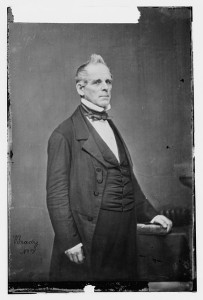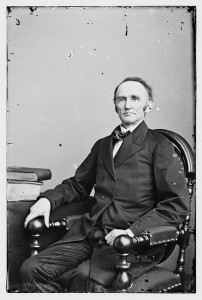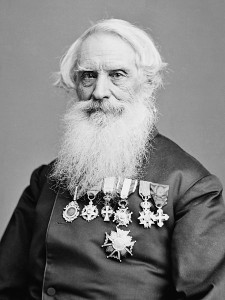Southern newspapers were finding lots to like in some northern publications.
From the Richmond Daily Dispatch August 15, 1861:
Peace meetings.
A correspondent of the New York Journal of Commerce writes:
The great number of peace meetings now being held all over the country are most significant; and the studied efforts of the ultra war journalists to suppress all information concerning them, evinces a wholesome dread of their influence. The people are waking up. The reign of terror no longer awes them into silence. It is becoming very evident that the voice of the farmers, mechanics and merchants of the rural districts is not for a vindictive or abolition war. They have no profits to make from contracts with Government, and seek no share in the unclean drippings of public plunder. These peace meetings are of course quite alarming to those who are accumulating magnificent fortunes as jobbers, contractors, antlers and camp followers. Peace will put an end to the selling of old vessels shoddy clothing, wooden soled shoes, tainted pork, beef, &c., to the Government, at three, four, or five times their value. Then there will be no longer an inviting field for agents and middle-men, who divide the spoils with the contractors and jobbers, or shave the soldiers of a percentage on their rations and wages. If we have peace, these worn out party hacks and soldiers of fortune, who continue to put themselves prominently forward on every committee which has the handling of large sums of money, will lose their golden opportunities for amassing fortunes. Such may well threaten to hang those who favor peace. For, to them, when war ceases, “Othello’s occupation’s gone.”
The Journal of Commerce is still in existence today. According to Wikipedia:
In 1827 Arthur Tappan and Samuel Morse decided that New York needed another newspaper. The Journal of Commerce operated two deepwater schooners to intercept incoming vessels and get stories ahead of the competition. Following Morse’s invention of the telegraph, the JoC was a founding member of the Associated Press, now the world’s largest news-gathering organization.
Publications in the 19th century took positions on political issues and were rarely concerned with being impartial. The JoC weighed in on the biggest issue of the day — slavery. Gerard Hallock and David Hale, partners in the JoC, were fervent abolitionists, but also decried the tactics of the war wing of the Republican Party. After the American Civil War broke out in 1861, the postmaster general suspended the paper’s mail privileges, effectively interrupting its publication, on grounds of “disloyalty.” Three years later, President Abraham Lincoln ordered the JoC closed after it was among New York papers victimized by a bogus story quoting the president as calling for 400,000 more volunteers.
Life of Gerard Hallock: editor of the New York Journal of commerce by William H. Hallock includes Gerard’s final editorial for the Journal of Commerce on August 31, 1861. In August 1861 a federal Grand Jury convened in New York City to investigate the Journal and other newspapers said to be treasonous. Shortly after that Postmaster General Montgomery Blair disallowed the Journal the use of the mails to distribute the paper. Hallock sold his interest to spare his partners the financial consequences.




Pingback: Parson Shuts Down | Blue Gray Review